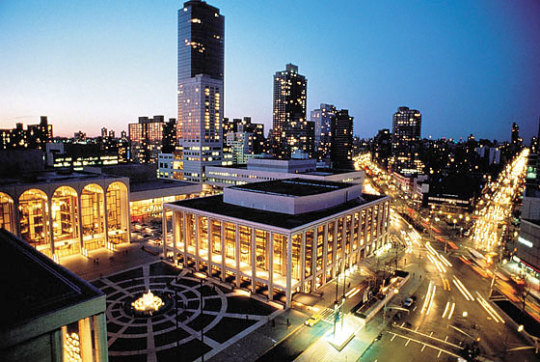Text
Interview: Edwin R. Williams, Met Opera Guild Program Coordinator
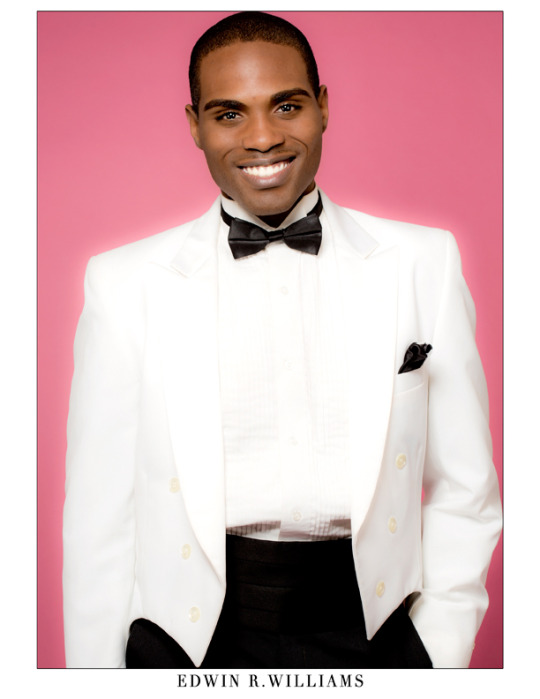
In celebration of Black History Month, we sat down for an interview with Edwin R. Williams, who oversees logistics and planning for the Guild’s Urban Voices program in Massachusetts. Click below to learn more about challenges he’s faced in his career and why he believes in the importance of arts education.
Met Opera Guild: Where did you get your start in music? Was it a part of your life early on?
Edwin R. Williams: At the age of five. My mother was a gospel singer in Saint Louis, Missouri and would record albums, perform, and tour the country with her group. I would attend their rehearsals on a regular basis, which helped to train my ear early on. I remember feeling as if I were in heaven as I listened to and learned their harmonies; I could literally sing all of vocal parts, but my favorite was my mother's part--soprano. Moving forward, I became all the more passionate about music and often sang lead roles in musicals and concerts at school, where I was very fortunate to have been surrounded by teachers who had an intense appreciation of the arts. These teachers encouraged me to perform, to believe in myself, and to use art to strengthen my education and experiences in life. This empowered me on many levels, and it created avenues for me to find my voice--both musically and in the broader sense of humanity and life.
MOG: Who are your influences (any genre)?
EW: I have a plethora of musical influences. Despite my classical training, Mariah Carey is the greatest of these. Listening to not only my mother, but also singers like Mariah (and even Minnie Riperton) allowed me to explore the most intricate and--in my experience--the most expressive passages of the voice. What I love about Mariah is that, although her voice has evolved over the years, it remains a rare and beauteous instrument from top to bottom. Marking her evolution has taught me that singing is not about perfection; instead, it is the expression and the sharing of intimate feelings and experiences that would otherwise become powerless. More importantly, I appreciate how my studies of divas like Ms. Carey have given me a unique lens as a classical musician in that there is a bridge to all genres of music that employ my singing, teaching, and advocacy.
MOG: Did you face any major challenges in your career?
EW: I would say that in my graduate studies (and beyond) it had become quite apparent to me that less and less teachers believed in me as a black man in classical music, and it became solely up to me to push myself to excel and believe in myself as a person and as a singer. There were teachers who told me that, as a black man, I will never sing particular roles. I constantly challenged (and continue to challenge) such finite thinking. Ultimately, it is my hope that my experiences will empower black people and other minorities to support each other and to believe in their competencies and unique offerings to the arena of classical music.
MOG: What made you want to go into the administrative side of the arts?
EW: The wonderful teachers I've had along my journey. These teachers understood the importance and power of music and art. Therefore, in understanding and appreciating the legacy of organizations such as the Metropolitan Opera Guild, I've developed a passion for supporting the teaching artists and teachers who stand on the front lines, cultivating our young people. In short, it is an honor to know that--at the end of the day (sometimes literally)--the work I do positively impacts other singers, teachers, and future artists and beautiful beings.
MOG: What aspects of arts education do you find most important? Why?
EW: I find the idea of creating bridges to be most important. There are many forms of art (and genres within these forms), thus artists are often forced to make big, exclusive decisions that potentially alienate them from the most creative parts of themselves. That is, artistic fluidity is another bridge that, once enforced, will allow an artist to find her or his truest voice and to utilize education as a tool to inform styles and technical choices from one form (or genre) to the next. Because the experience of an artist can be very specific to that person or to the demographic to which she or he belongs, there must also be more provisions so that ALL populations have access to ALL art. The goal is to broaden the cultural spectrum of opportunity, particularly in regards to the pool of artists being selected to perform, teach, and administrate. Ultimately, this building and enforcement of such a "bridge," will bring high art into equal heights--in both pedagogy and performance--as all others.
MOG: What advice would you give those looking to get involved in an arts or arts education career?
EW: Find ways to be engulfed by art and other artists; to consistently seek out teachers, mentors, and resources that will deepen your understanding and appreciation of art and education; to consistently allow personal time to create, stylize, and master your art; to know the importance of improvisation; and to, most importantly, ALWAYS believe in yourself as this will be what allows you to be whole and to succeed at all costs.
MOG: What is your favorite opera?
My favorite opera is Les pêcheurs de perles, by Bizet. My favorite aria from this gorgeous opera is "Je crois entendre encore," especially as sung by the vocally-versatile Alfredo Kraus, tenor.
Edwin R. Williams works as the Program Coordinator, supervising the logistics and planning for the Guild’s Urban Voices program in Massachusetts. He is also a classically trained tenor who has worked as a singer, actor and model. This article has been lightly edited for length and clarity.
4 notes
·
View notes
Text
Interview: Courtney Carey, Met Opera Guild Teaching Artist
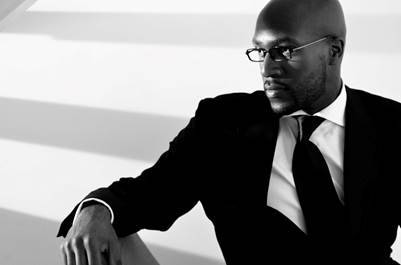
In honor of Black History Month, we sat down for a chat with one of our talented Teaching Artists, Mr. Courtney Carey. Courtney is a passionate advocate of arts education, not to mention a fantastic performer in his own right. Click below to read more about how he got his start in music, what inspires him, and the advice he would give to someone looking to work in arts education.
Met Opera Guild: Where did you get your start in music? Was it a part of your life early on?
Courtney Carey: My earliest musical memories are from the Orff music trailer at Raleigh-Bartlett Meadows Elementary School in Memphis, TN. Those were the days (the early 80s) when music was still very much a part of the general curriculum. We would go out to the back of the school, and go inside the trailer and play all kinds of instruments. What a time! I didn't become serious about music, however, until I entered junior high school and joined the concert band. I'll never forget the first day of class. Our band teacher, Janet Harris, opened the instrument room and said "Okay, everyone go inside and choose the instrument you want to play. It will be your best friend for the next three years." I chose the bassoon because it was the most unique instrument of the lot. We had a wonderful time playing pep rallies and concerts; we even went on a band trip to Houston, TX to play a festival. The highlight of those years was being offered the opportunity to train with the principal bassoonist of the Memphis Symphony Orchestra -- I was only 14 years old!
MOG: Who are your influences (any genre)?
CC: My musical influences are all over the map, but they certainly give a bit of insight into my musical taste. Here they are, and in this order:
Luther Vandross (the sheer beauty of his voice still captivates me to this day. I sang one of his songs in the final round of the very first competition I ever entered -- and won!)
Leontyne Price
Grace Bumbry
Franco Corelli
Sherrill Milnes
Whitney Houston
I am a very high octane performer, both as a conductor and singer, and have certainly modeled my performing after these great artists.
MOG: What aspects of arts education do you find most important? Why?
CC: I feel that music literacy is most important, and an area on which I focus in all of my residencies. I work very hard to make sure that all of my students leave my music classes with some score reading proficiency. When I first started as a teaching artist in NYC, those core concepts -- note values, note names and shapes, dynamics etc. -- were not state-mandated concepts to be taught as a part of the general music curriculum. During my third year of teaching, vast changes were made in New York State and I was happy that we were already teaching these important literacy skills in our work through the Met Opera Guild, so we had very few adjustments in teaching stratagem to make.
MOG: Do you have a favorite Teaching Artist moment?
CC: Yes. The year was 2011, and I had been working on a special two-year residency at a public school in the Bronx. Because it was a two-year residency I was able to move up with my students; I had them both 4th and 5th grades. In their second year we performed excerpts from Mozart's The Magic Flute. We had a soprano from the Met, Janinah Burnett, come in to sing Pamina's aria, and two students from the Manhattan School of Music, Rashard Deleston and Cassandra Douglas, to sing Papageno and Papagena respectively. My fifth graders sang in three part harmony, and the Drei Knaben scene in GERMAN, and also an adaptation of Papageno's opening aria. The show was absolutely spectacular. It was one time where everything worked, and worked brilliantly.
MOG: What advice would you give those looking to get involved in an arts or arts education career?
CC: Make sure that it is what you want to do! We live in a very expensive society, where cost of living is rising daily, and salaries aren't rising to meet those soaring costs. I see so many young people graduating from schools of music with hopes of jumping into a serious performing career. Reality settles in quickly, and many turn to arts education as a "fall back". It's great to have a Plan B, but make sure that the Plan B is a plan you would love effecting if it comes down to it. These kids come to school in most instances with very high expectations. Your teaching, in many ways, is like entertainment/performing. They know when your heart isn't in it. But when you're in there pulling for them, they know it, and they rise up and put their all in. That's a great thing to experience.
MOG: What is your favorite opera?
CC: My favorite opera -- yikes, that's a hard one! I absolutely love the music of Gaetano Donizetti. I have sung his music perhaps more than any other composer. But, I suppose as a complete opera, Giuseppe Verdi's Ernani ranks as one of my all time favorites. There's something about the music that never bores me, and I can listen to the piece in its entirety without pause. One day, I hope to sing the opera -- I already know the two main arias (hint, hint).
In the 2016-17 school year, Courtney is working with Hedgepeth/Williams School for the Arts in Trenton, NJ through the Met Opera Guild’s “Teaching Through Opera” program.
3 notes
·
View notes
Note
What is the best way for someone outside of New York City to enjoy your programs?
A lot of our lecture programs are recorded as part of our free podcast series! You can check them out here: http://www.metguild.org/podcast/
2 notes
·
View notes
Link
#FantasyOpera! is like #FantasyFootball, but more dramatic! This week, vote on the ultimate cast of singers (past or present) for ORFEO ED EURIDICE. We'll share the final line-up on our Facebook page this Monday.
2 notes
·
View notes
Video
vimeo
Have you registered for the Guild's Opera Learning Institute yet? Don't miss out on this great educational opportunity! Open to teachers of all grades and subjects, with the option to receive NYC DOE P-credits. Click here for more info and registration!
3 notes
·
View notes
Photo
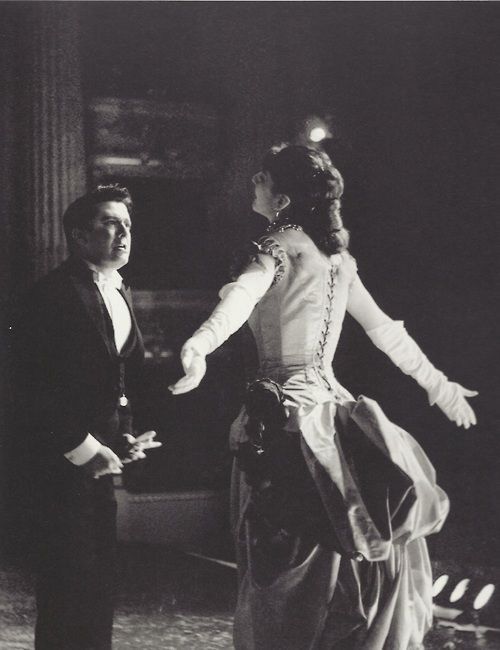
Maria Callas and Giuseppe Di Stefano in La Traviata.
230 notes
·
View notes
Link
The Metropolitan Opera Guild mourns the death of Stewart Pearce, Managing Director from 2010-2015. We extend our sincerest condolences to Stewart's family and friends, including his husband Kevin Kellog. With his unfailing good sense, patience, wisdom, and sense of humor, Stewart won the respect and affection of hundreds of colleagues. It goes without saying that the Met and Guild were extraordinarily lucky to have had his services and loyalty for nearly four decades.
4 notes
·
View notes
Photo
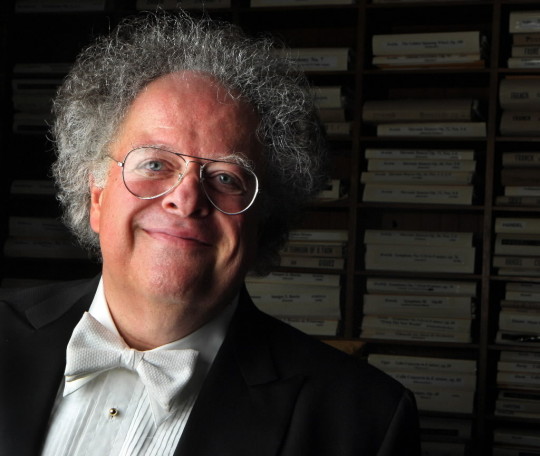
Tomorrow's Carnegie Hall concert is one of James Levine’s final two performances as music director of The Metropolitan Opera. Our recent podcast episode celebrates the Maestro's amazing career—we hope you enjoy.
#james levine#carnegie hall#met opera#met opera guild#metropolitan opera guild#opera#opera tag#podcast#classical music
8 notes
·
View notes
Photo
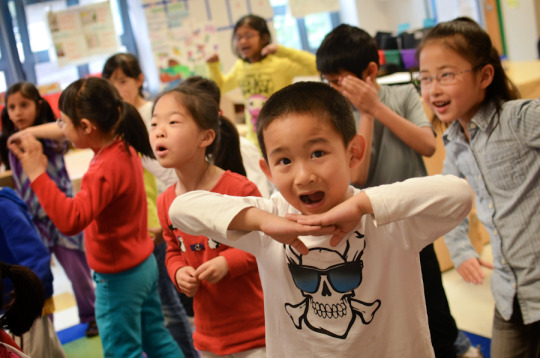
Are you an educator looking to incorporate the arts into your classroom curriculum? Look no further than our Opera Learning Institute this August!
Teachers can receive professional development credit through the NYCDOE, and will leave with clear strategies for connecting artistic processes with multiple subject areas through the Guild's opera-based learning program. Click on the photo above for more info!
#opera#opera tag#met opera guild#arts ed#arts education#new york#new york city#nyc#opera learning institute
1 note
·
View note
Photo
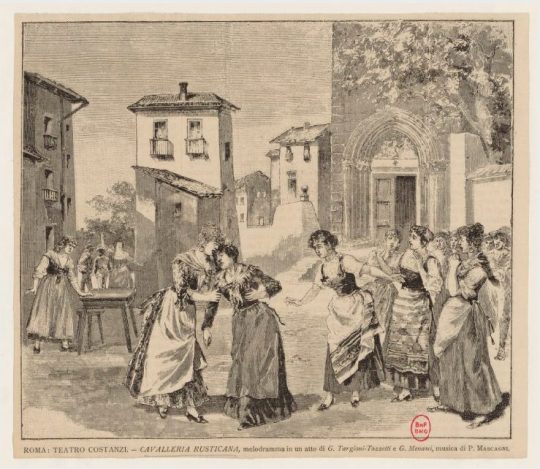
CAVALLERIA RUSTICANA premiered on this day in 1890 at the Teatro Costanzi in Rome. Despite a half empty house during the premiere, Mascagni's opera was a resounding success and received its first performance at the Met on December 30 1891!
17 notes
·
View notes
Link
So cool!
#opera#opera tag#tannhauser#michael volle#freiburg institute#music#classical music#musician#met opera#met opera guild#wagner
32 notes
·
View notes
Photo
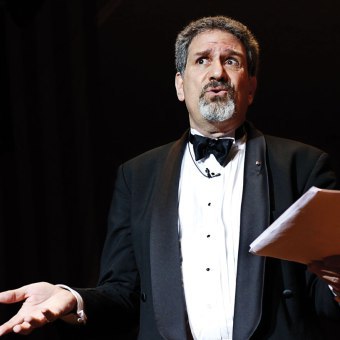
Get the inside scoop on what it takes to bring an opera from page to stage in "The Opera Stage Director's Point of View" with Jay Lesenger, May 10 and 12!
For information and tickets, please visit metguild.org.
#met opera guild#opera#opera tag#nyc#opera stage director#stage director#performing arts#classical music#jay lesenger#new york#new york city#met opera
5 notes
·
View notes
Photo
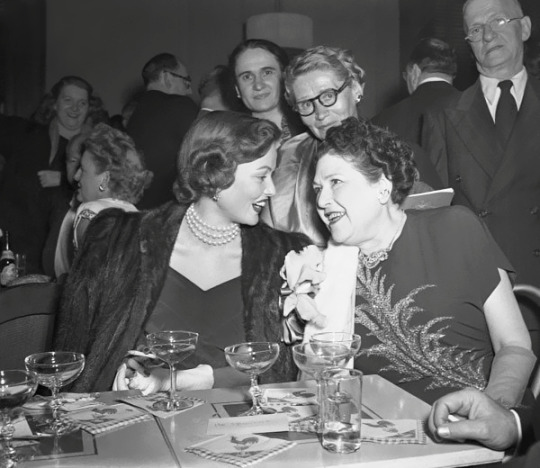
NYC, 1947: Gene Tierney and Louella Parsons chat in the bar lounge at the Metropolitan Opera House during intermission on opening night.
115 notes
·
View notes
Photo
These two knocked it straight out of the park. Major style envy!
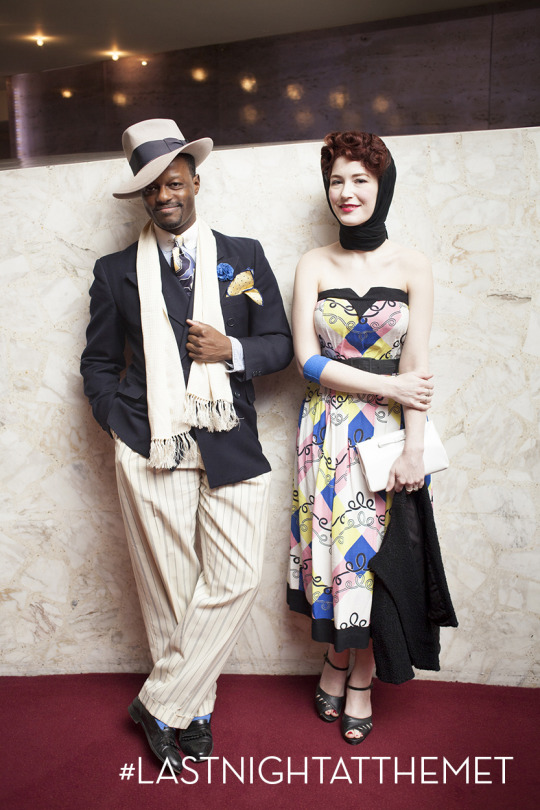
38 notes
·
View notes
Photo
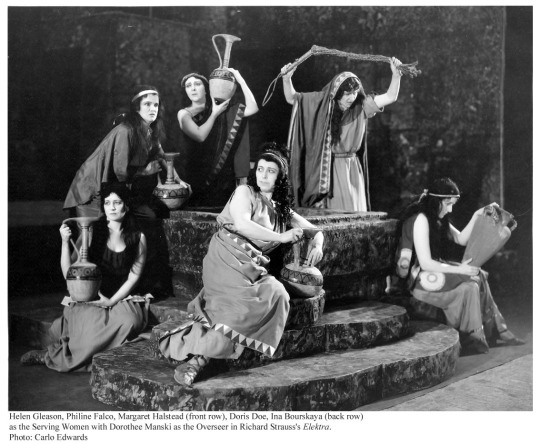
The Met’s season is almost over, and tonight marks the second-to-last performance of Elektra. Have you seen it?
Photo: 1932 production of Elektra courtesy of the Met Opera Archives
22 notes
·
View notes
Link
22 notes
·
View notes
